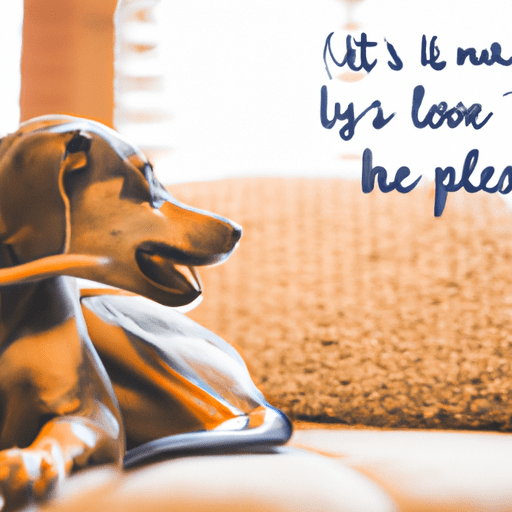Understanding Your Dog’s Behavior
As a caregiver, you want the best for your furry friend. You want to understand their every move, every sound, and every action. But, sometimes, their behavior can baffle you. One such behavior is when dogs chew their tails. This act can be as harmless as an itch, or as serious as a medical condition. Let’s delve into why dogs chew their tails and what you can do to help.
Possible Reasons for Tail Chewing
-
Allergies: Just like humans, dogs can have allergies too. They can be allergic to certain types of food, environmental factors, or even flea bites. These allergies can cause an itch in their bodies, including their tails.
-
Anxiety and Boredom: Dogs are emotional creatures. They can feel anxious or bored, especially when left alone for long hours. This can lead to repetitive behaviors like tail chewing.
-
Pain: If your dog is suddenly chewing its tail, there might be a hidden pain. It could be due to injuries, anal gland issues, or even arthritis.
-
Parasites: Fleas and ticks love to hide in the tail area. Their bites can cause severe itchiness, leading your dog to chew its tail.
What to Look for
| Signs | Possible Causes |
|---|---|
| Redness, Swelling | Allergies |
| Excessive Licking, Pacing | Anxiety |
| Whining, Change in Appetite | Pain |
| Small Red Bumps, Hair Loss | Parasites |
How to Help Your Dog
As a caregiver, it’s heartbreaking to see your dog in distress. Here’s how you can help:
-
Visit a Vet: If you notice any abnormal signs, it’s best to take your dog to the vet. They can diagnose the exact cause and provide appropriate treatment.
-
Provide Mental Stimulation: If boredom is the cause, try to engage your dog in different activities. Toys, puzzle feeders, and interactive games can help.
-
Regularly Check for Parasites: Regular grooming and checks can help you spot parasites early on. You can also use preventive treatments to keep fleas and ticks at bay.
FAQ
Q1: Can tail chewing lead to serious health issues?
Yes, if not checked in time, it can lead to infections and serious skin conditions.
Q2: How to stop my dog from chewing its tail?
Identify the root cause and address it. If it’s due to allergies, eliminate the allergen. If it’s due to boredom, provide mental stimulation.
Q3: When should I take my dog to the vet?
If your dog’s tail chewing is accompanied by other signs like redness, swelling, change in appetite, or behavior, it’s best to visit the vet.
Remember, as a caregiver, your dog’s well-being lies in your hands. Be attentive, be patient, and most importantly, be loving. After all, your dog’s tail wagging is one of the most joyful sights to behold.



